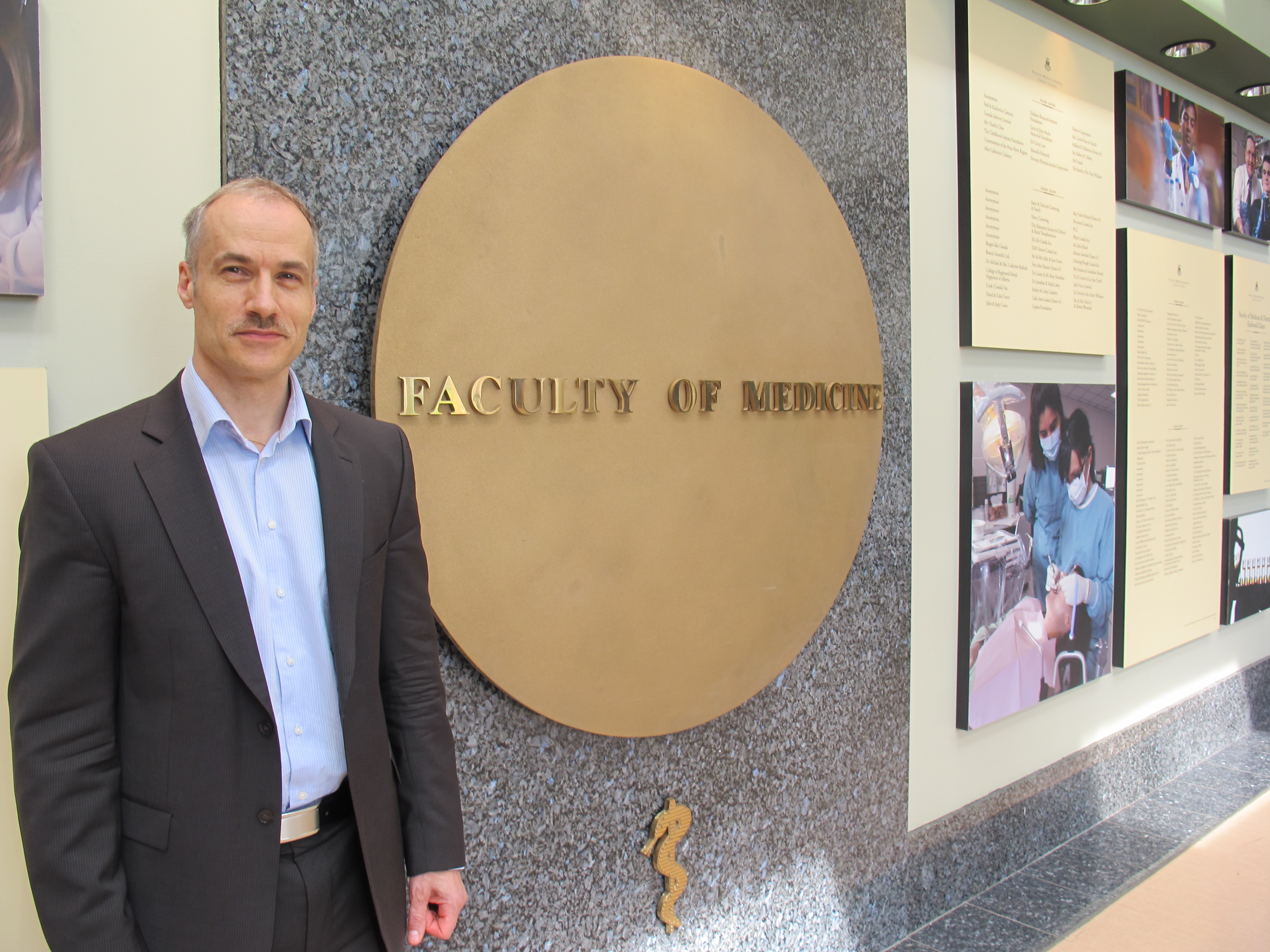
Cardiac research from the Faculty of Medicine & Dentistry had serious impact as a source for the American College of Cardiology and the American Heart Association's new guidelines on how to treat patients undergoing coronary artery bypass graft surgery.
Michael Zaugg, Eliana Lucchinetti and Barry Finegan have shown that a new treatment done with patients just prior to surgery may not be as beneficial as once thought.
Previous research has shown that volatile anaesthetics, when paired with an opiate as sedation for surgery, are extremely protective of the heart because it activates endogenous protection mechanisms in the heart that are good for the organ. Just recently, a new treatment has been added to the list which sees physicians put a blood pressure cuff around the leg or arm to restrict blood flow in the area, allowing a number of molecules to accumulate in the area and when it's released, those agents get in to the bloodstream and are moved to the heart, where they induce protection. This process is called remote ischemic preconditioning.
"I think there is significant interference between these treatments and it doesn't really help to add more," said Zaugg. "It may also have some side effects because these people sometimes already have problems with perfusion [lack of blood flow] of their legs, so it may cause damage too."
The study was performed collecting cardiac tissue samples at the Mazankowski Alberta Heart Institute. Zaugg and Lucchinetti measured the gene expression of the entire patient's genome, and also measured biomarkers that are important in cardiac function and the inflammatory response. The study was published in the journal Anesthesiology in 2012.
The American College of Cardiology and the American Heart Association used this study, Zaugg's previous work, and others' research to help develop guidelines for treatment.
"We are proud to be part of these endeavours and we contributed significantly to the release of the guidelines," said Zaugg. "We had a lot of great feedback for this work."
His work will now focus on how volatile anesthetics affect or interfere with stem cells in the heart.
Zaugg and Lucchinetti's work was funded by the University of Alberta Hospital Foundation, and grants from the Mazankowski Alberta Heart Institute and the Swiss National Science Foundation.